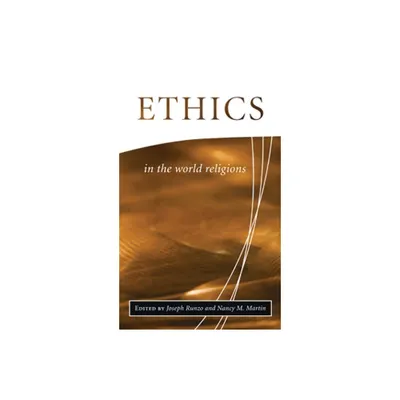Home
How to Do Good & Avoid Evil: A Global Ethic from the Sources of Judaism
Loading Inventory...
Barnes and Noble
How to Do Good & Avoid Evil: A Global Ethic from the Sources of Judaism
Current price: $12.99


Barnes and Noble
How to Do Good & Avoid Evil: A Global Ethic from the Sources of Judaism
Current price: $12.99
Loading Inventory...
Size: Paperback
*Product Information may vary - to confirm product availability, pricing, and additional information please contact Barnes and Noble
Explore how the principles of a global ethic can be found in Judaism and how they can provide the ethical norms for all religions to work together toward a more peaceful humankind.
In 1993, the Parliament of the World's Religions endorsed the "Declaration toward a Global Ethic" composed by Hans Küng. In it, representatives from all the world's religions agreed on principles for a global ethic and committed themselves to directives of nonviolence, respect for life, solidarity, a just economic order, tolerance, and equal rights and partnership between men and women. But the declaration was just the first step.
In this impressive volume, Hans Küng, probably the most famous living Roman Catholic theologian, and Rabbi Walter Homolka, head of Germany’s Abraham Geiger rabbinical seminary and distinguished professor, draw on the Jewish tradition to show the riches that Judaism can offer people of all faiths and nonbelievers in achieving these directives.
Presenting key sacred texts and theological writings, the authors make the case for binding values and basic moral attitudes that can be found in Judaism’s universal message of a better world. Exploring Judaism’s focus on ethical conduct over declarations of faith, the authors show that making ethical decisions is indispensable in an ever-changing world.
In 1993, the Parliament of the World's Religions endorsed the "Declaration toward a Global Ethic" composed by Hans Küng. In it, representatives from all the world's religions agreed on principles for a global ethic and committed themselves to directives of nonviolence, respect for life, solidarity, a just economic order, tolerance, and equal rights and partnership between men and women. But the declaration was just the first step.
In this impressive volume, Hans Küng, probably the most famous living Roman Catholic theologian, and Rabbi Walter Homolka, head of Germany’s Abraham Geiger rabbinical seminary and distinguished professor, draw on the Jewish tradition to show the riches that Judaism can offer people of all faiths and nonbelievers in achieving these directives.
Presenting key sacred texts and theological writings, the authors make the case for binding values and basic moral attitudes that can be found in Judaism’s universal message of a better world. Exploring Judaism’s focus on ethical conduct over declarations of faith, the authors show that making ethical decisions is indispensable in an ever-changing world.


















